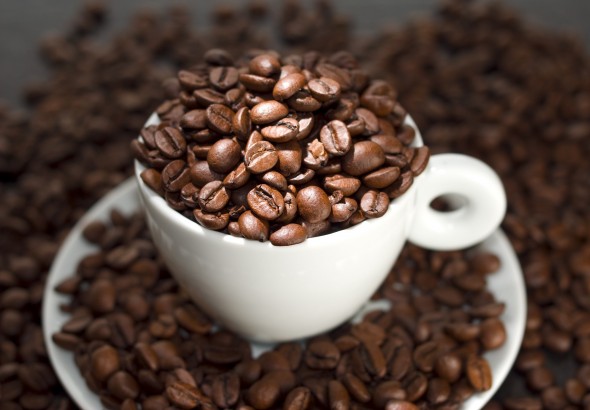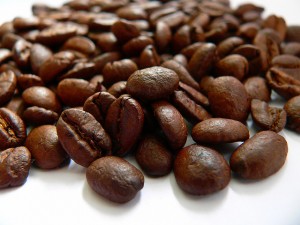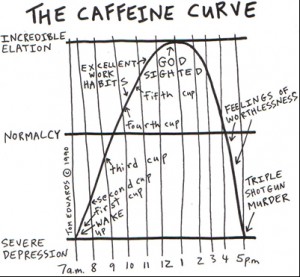
This is the 1st installment of the Supplement Series. The goal of these articles is to provide you an overview of each supplement (uses, side effects, dosage, cycling, rank, etc), and we will go more in depth as time goes on. We might throw down some science on you, but the goal is to leave you informed and ready to rock. The articles will be organized with an overview for those of you that just want to get right into the grit, as well as a more in depth analysis and look at some of the research on caffeine. Now on to the world’s favorite drug.
Quick and Dirty
One of the most commonly used stimulants in the sports world caffeine is found in everything, from tea to coffee to chocolate. Caffeine is usually derived from coffee beans, that or engineered in a dark laboratory somewhere in Area 51. It can boost your energy, help you focus, and even increase your power output when it comes to weight lifting, or a high intensity sport. Research has also shown that coffee (regular or decaf) in particular can reduce the risk of certain types of cancer, stroke, and cardiovascular disease. This may be due to coffee’s high antioxidant content. Some people also use caffeine for asthma, gallbladder disease, ADHD, low blood pressure, and type 2 diabetes.
Dosage Per Goal:
- Fat Loss: 100-200 mg 2-3 times per day between meals.
- Focus: 100-200 mg every couple of hours as needed
- Workouts: 200-400 mg 30-60 minutes before working out (I prefer 400 mg 30 minutes before)
Cycling: Unless you’re taking caffeine for medical reasons, cycle every 8 weeks for 1-2 weeks.

What is caffeine?
If you’re reading this, you probably know what caffeine feels like, but you may not know exactly what it is; a chemical (named 1,3,7-trimethylxanthine) found in plants like the coffee bean, and like Frankenstein can also be engineered in a lab. If you’re like 90% of Americans you’ve probably consumed some caffeine in one form or another in the past 24 hours. If you haven’t you’re 1 in 10. Congrats. [1. villanova.edu/villanova/studentlife/health/promotion/goto/resources/drugs/caffeine.html]
To humans, caffeine is a central nervous system stimulant, to some unlucky insects it’s a natural pesticide that some plants produce to defend themselves from being eaten.
What uses does caffeine have?
Fat Loss: We’d recommend that you don’t rely on caffeine for fat loss, and that you stick to exercise and eating well. Some studies show caffeine can be used as a thermogenic. Meaning that thermogenisis the body’s function of converting calories into heat energy takes place. There are conflicting studies for and against caffeine being an effective supplement for fat loss. If you choose to use caffeine as a fat loss supplement research some fat loss stacks.
Mental Alertness: Studies have shown as little as a 75 mg serving of caffeine can help increase attention. [2. coffeeandhealth.org/research-centre/overview/caffeine-and-mental-alertness/] Caffeine does this by preventing Adenosine from causing sedation and relaxation when it acts upon receptors located in the brain. [3. examine.com/supplements/Caffeine]
Physical Fitness: Caffeine can help you train harder [4. http://www.ncbi.nlm.nih.gov/pubmed/22124354], push yourself further by increasing stamina, and even reduce muscle pain after working out. [5. http://www.sciencedaily.com/releases/2009/03/090330200831.htm]
For me, caffeine is a good pre-workout in and of itself, but heed warning, do not replace your sleep with caffeine. If you have to have caffeine to function in or out of the gym, it’s probably time to get some more sleep, and take a break for 1-2 weeks. Recovery is more important than having a short burst of energy.
Other research has shown that caffeine does not help with short bursts of high intensity physical activity such as 90 seconds or less.
Other Uses: Coffee (regular or decaf) – may reduce the risk of stroke, several types of cancer, and cardiovascular disease. Research suggests that this is due to high antioxidant content found in coffee. Some doctors prescribe caffeine for asthma, migraines, gallbladder disease, ADHD, low blood pressure, and type 2 diabetes. I’m not a Dr so please see yours if you think caffeine may help with a medical condition.
What side effects does caffeine have?
Caffeine is a diuretic, meaning it does cause an increase in urine volume, but generally this is very mild and won’t have a negative impact on you or your workout. If taken too close to your bed time, you may experience some insomnia. You probably already know how caffeine effects you on a personal level. If you’ve never taken caffeine before I suggest you start out with a lower dosage, try mixing half a cup of regular coffee with half decaf coffee. This same technique can also be used when you’re cycling. More on that below.

Addiction: You may notice as the days go on you need to go from 1 cup of coffee to 6 cups of coffee to function at the same level. Then you become dependent on your 6 cups of coffee, you become irritable, and want to kill everyone around you if you don’t get your coffee fix. This could mean that you’re officially addicted to caffeine. I’d recommend cycling off in this case (see our section on cycling below).
What dosage should you use?
Dosage should be tailored to the individual and the goal. Dr. Jim Stoppani recommends that for fat loss you take 100-200 mg 2-3 times per day between meals. For mental acuity and focus, 100-200 mg of caffeine can be used every couple of hours. For workouts take 200-400 mg 30-60 minutes before working out. [3. jimstoppani.com]
Do you need to cycle?
If you’re using more than 200 mg per day you may need to cycle. Using caffeine long term reduces the effectiveness and your body can become desensitized. Try cycling off at least every 8 weeks for 1-2 weeks. [4. jimstoppani.com]
Research shows that it takes four days or more for caffeine tolerance to decline to the level where caffeine will start to influence performance. [5. Colgan, Michael, Dr. “Caffeine: The Right Way.” Optimum Sports Nutrition. N.p.: n.p., n.d. 300-03. Print.]
A problem I used to always have with cycling off of caffeine is caffeine headaches. A simple solution to this is to replace your cup of coffee with 1/2 regular, and 1/2 decaf and slowly increase the decaf until you’re off for 1-2 weeks. Another way is to replace your caffeine entirely with a cup of green tea every day for those 2 weeks. Green Tea has significantly less caffeine than coffee, so if you’re still getting headaches try two cups.
Rank
On a scale of 1-10, 10 being the highest this supplement gets a 9. It gets a 9 because it’s not a must have in everyone’s arsenal, but it’s highly effective with quite a bit of research to back it up. I personally use this tool especially when it comes to the gym. If used correctly caffeine can certainly be a game changer. The problem is that most people don’t use caffeine correctly. Make sure you’re sticking to a dosage that works for you, and that you’re properly cycling. Try getting it from sources like black coffee, tea, or straight caffeine from a trusted source. We don’t recommend energy drinks, or sugar laden soda to get your caffeine fix.
Photo Sources:Beans, Coffee Beans, Caffeine Curve
